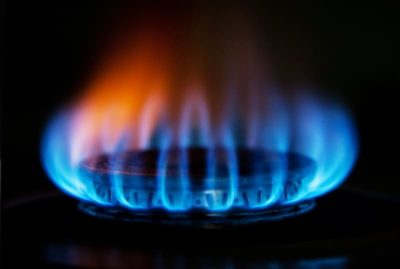Residents in West Central Illinois who use propane to heat their homes have become concerned about the supply following yesterday’s emergency declaration announcement by the Federal Motor Carrier Safety Administration of propane shortages in the mid-west.
Seven states including Illinois received the declaration which will allow for increased transportation of propane and natural gas to keep supply levels up to meet recent higher demands.
Propane Manager for ILMO Propane and Products Company Dennis Henry, said they started to see strains in the availability of propane from both of their suppliers about two weeks ago.
“Both of them put us on allocation, which means they restrict the amount of propane we can get. We have been able to get enough to keep going. At this point we have not cut anyone off, but we have heard reports of up in Iowa and northern Illinois that farmers have been told- we are not going to bring you any more propane until we get this thing kind of worked out.
We haven’t had to do that here, it may come to that but I don’t think so, I think we are going to be ok. We are getting close to the end of the crop drying in this area so we should be ok. But even if this shortage continues, we will prioritize our customers and home heating always goes to the top of the list. We cannot let people run out of propane.”
Henry said that the combination of a late harvest and early winter weather conditions that hit the mid-west in recent weeks, led to a spike in demand that has put pressure on suppliers. Henry said that normally they are done supplying propane to farmers for drying crops by the middle of November, before the increase in household use begins with falling temperatures.
Henry said the problem lies in getting the propane out to suppliers, and not with production.
“They set record levels of production over the summer. The vast majority of propane in this area comes out of a cavern in central Kansas, and right now they have 1.2 billion gallons of propane sitting there. They have pipelines that run out and most of our propane comes off that pipeline. The problem is they can’t push it through the pipeline fast enough to keep up with the current demand at the terminals. The primary cause of that is we had a lot of rain in the spring so farmers planted crops late, so harvest is late.”
The emergency declaration lessons the restrictions on hours long haul carriers can drive in a day to get propane loads to suppliers. Henry said that they still have to be diligent that they are not driving while fatigued. But that having the extra hours will make a difference in areas hit harder by the shortage than we here in Illinois have been.
“We buy most of our propane from terminals in Moberly, Missouri, Wood River, Illinois and Farmington, Illinois. That big hub that we talked about earlier in Conway, Kansas, you can send a truck there and have it filled and bring it back. It adds a lot to the cost of the propane, but you can do that, and there are companies doing that now. Maybe not in this immediate area, but definitely up in Iowa. But when you do that, those truckers need those extra hours of service, so they can make that trip out there and back.”
Henry said that corn drying is way up this fall in comparison to an average year, but that home heating usage has remained steady even with the recent cold snap. Henry said that so far, propane delivery trucks in this area will continue to run without interruptions.
“We are doing ok, we are making our normal deliveries, we are filling the tanks completely when we get there. It’s a struggle to get the loads in and it is just a lot of logistics issues. But we, so far, we’ve been doing fine and we just hope we can continue that for the next couple of weeks till we can get through this.
The biggest thing is, and I’m sure I can speak for most propane companies is, they are going to take care of their home heating customers first if it really gets tight. So they should not worry about running out of propane and not being able to get a fill.”
Henry said that as crop drying and harvest winds down, and if the weather warms up for a while, then the supply and demand problem will fix itself.




